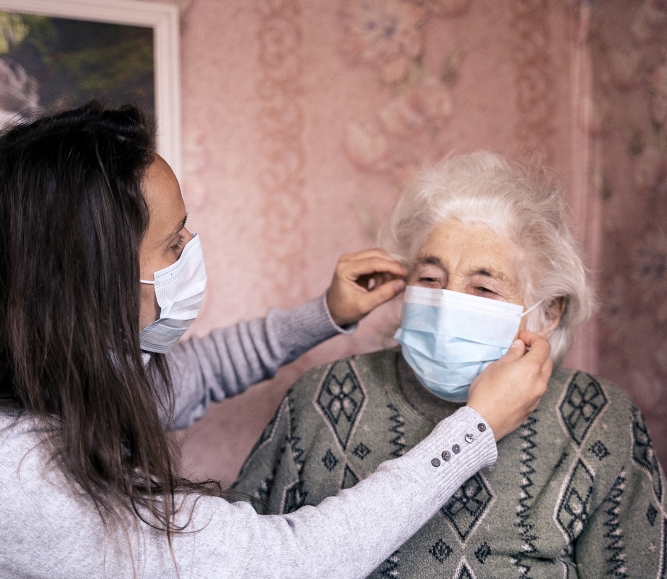CMS launches new tool to track vaccination rates in nursing homes
Author

Blaire Bryant
Upcoming Events
Related News

Key Takeaways
On September 21, the Centers for Medicare & Medicaid Services (CMS) launched a new tool that tracks and compares COVID-19 vaccination rates in Medicare and Medicaid certified nursing homes across the country. The tool allows both the public and the Biden administration to monitor vaccine uptake among both residents and staff in these facilities and compare rates at both the state and national level. CMS also plans to use this tool and its data to identify facilities that need additional resources or assistance to respond to the pandemic.
Since May 2021, long-term care facilities have been required to report residential and staff vaccination data to the Centers for Disease Control and Prevention (CDC). This information is available on the CMS COVID-19 Nursing Home Data website. In August, the Biden administration also announced that CMS will release an Interim Final Rule (IFR) that would require Medicare and Medicaid nursing homes to mandate COVID-19 vaccinations for their workforce. This mandate was later extended to include all providers including hospitals, home-health agencies and dialysis centers.
CMS is expected to release the IFR on vaccination requirements for health care facilities in October 2021. Counties own and operate 449 nursing homes and directly support 758 nursing homes across the U.S., who will be expected to comply with both regulatory and reporting requirements.
NACo will continue to monitor regulatory developments related to nursing home and long-term care facilities. For more information on the impact of COVID-19 on nursing home facilities, click here.
ADDITIONAL RESOURCES
Resource
NACo Brief: Nursing Homes & COVID-19

Related News

Drug tracking software helps counties identify trends, save lives
Florida counties are using an artificial intelligence tool called Drug TRAC to track and report drug trends, with the aim of providing quicker outreach and saving lives.

White House Executive Order establishes national substance use disorder response
On January 29, the White House issued an Executive Order (EO) establishing the Great American Recovery Initiative, a new federal effort aimed at coordinating a national response to substance use disorder (SUD).

USDA and HHS release new dietary guidelines
On January 7, U.S. Department of Agriculture Secretary Brooke Rollins and U.S. Department of Health and Human Services Secretary Robert F. Kennedy, Jr. unveiled the new Dietary Guidelines for Americans, 2025–2030.